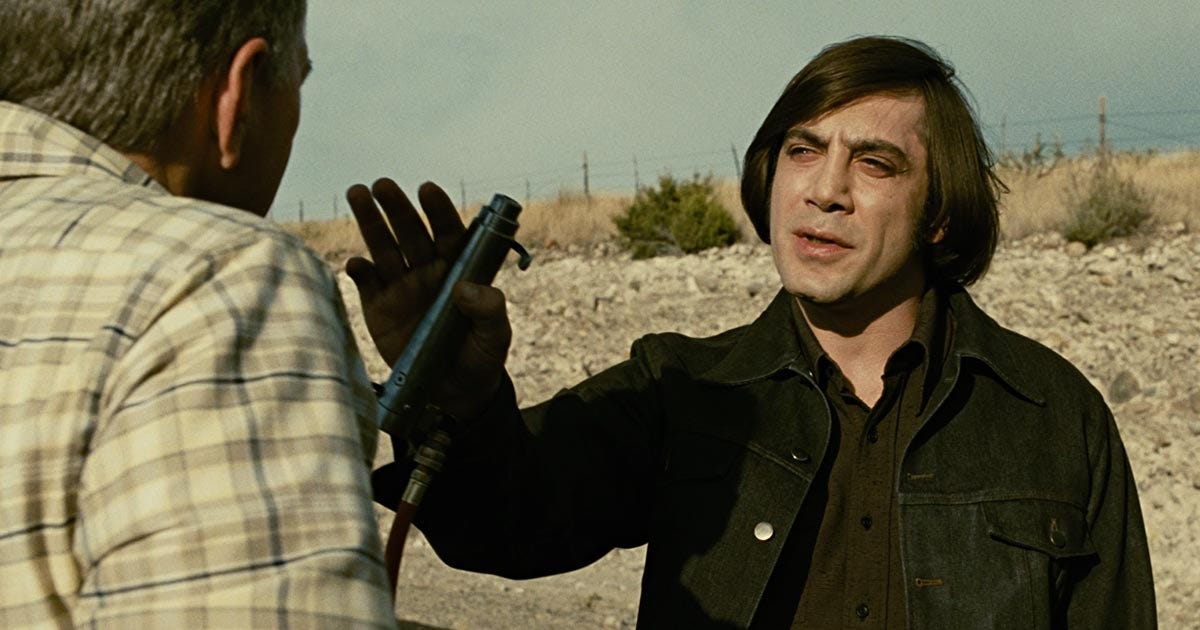
The Villainy of Anton Chigurh A Study in Pure Evil
Anton Chigurh, the cold-blooded hitman from Cormac McCarthy's "No Country for Old Men," is a character that has become synonymous with the concept of pure evil in modern literature and film. Portrayed masterfully by Javier Bardem in the Coen Brothers' adaptation, Chigurh is not just a villain but a force of nature—a relentless embodiment of fate and nihilism. His unique belief system, coupled with a philosophy often reflecting that of an existentialist, makes him one of the most intriguing antagonists in contemporary cinema.
The Philosophy of Chigurh
What sets Anton Chigurh apart from other villains is not merely his ruthless nature but his complex worldview. To Chigurh, life is governed by chance, and morality is subjective. He famously uses a coin toss to determine the fate of his victims, suggesting that their lives hang precariously on a 50-50 chance rather than any moral obligation. This detachment from human emotion and ethical considerations reveals a chilling truth about his character—he believes that each choice is ultimately devoid of significance, reflecting the absurdity of existence. His cold rationale makes him a terrifying figure, as he operates outside the conventional notions of good and evil.
Chigurh's Impact on Others
Chigurh's chilling presence profoundly affects the lives of those he encounters. His brutal efficiency and lethality serve as a stark reminder of mortality and the randomness of fate. Characters like Sheriff Ed Tom Bell and Moss are not merely protagonists reacting to events; they represent the struggle against a force that embodies chaos and destruction. Sheriff Bell, in particular, serves as a counterpoint to Chigurh, representing the old moral frameworks in a world increasingly indifferent to good and evil. The ensuing conflict between Bell’s ideals and Chigurh's nihilism encapsulates the central theme of the story, highlighting the fading nature of traditional morality in an ever-complicated world.
The Aesthetic of Evil
The portrayal of Chigurh is not just a testament to exquisite writing and direction but also a representation of how evil can be woven into the very fabric of a narrative. Chigurh's distinctive look, complete with his cruelly styled haircut and unforgiving expression, adds an unsettling visual dynamic to his character. The use of silence, stillness, and stark landscapes in the film enhances the portrayal of his villainy. When combined with powerful dialogue and chilling confrontations, the aesthetic choices create an atmosphere of foreboding and dread, inviting viewers to confront their fear of the unknown and the uncontrollable nature of evil.
The Cultural Significance of Chigurh's Character
In addition to having a lasting impact on literature and cinema, Chigurh has also permeated popular culture, evidenced by the availability of "No Country for Old Men Official Merch." From T-shirts featuring his iconic likeness to memorabilia pinpointing pivotal scenes from the film, Chigurh’s character has forged a connection that transcends the narrative. This merchandise allows fans to keep a piece of that dark legacy alive, prompting discussions surrounding morality, fate, and human nature. In a society confronted with ethical dilemmas and chaotic circumstances, Anton Chigurh remains not only a timeless character in the realm of fiction but also a mirror reflecting the shadows of our moral quandaries.









